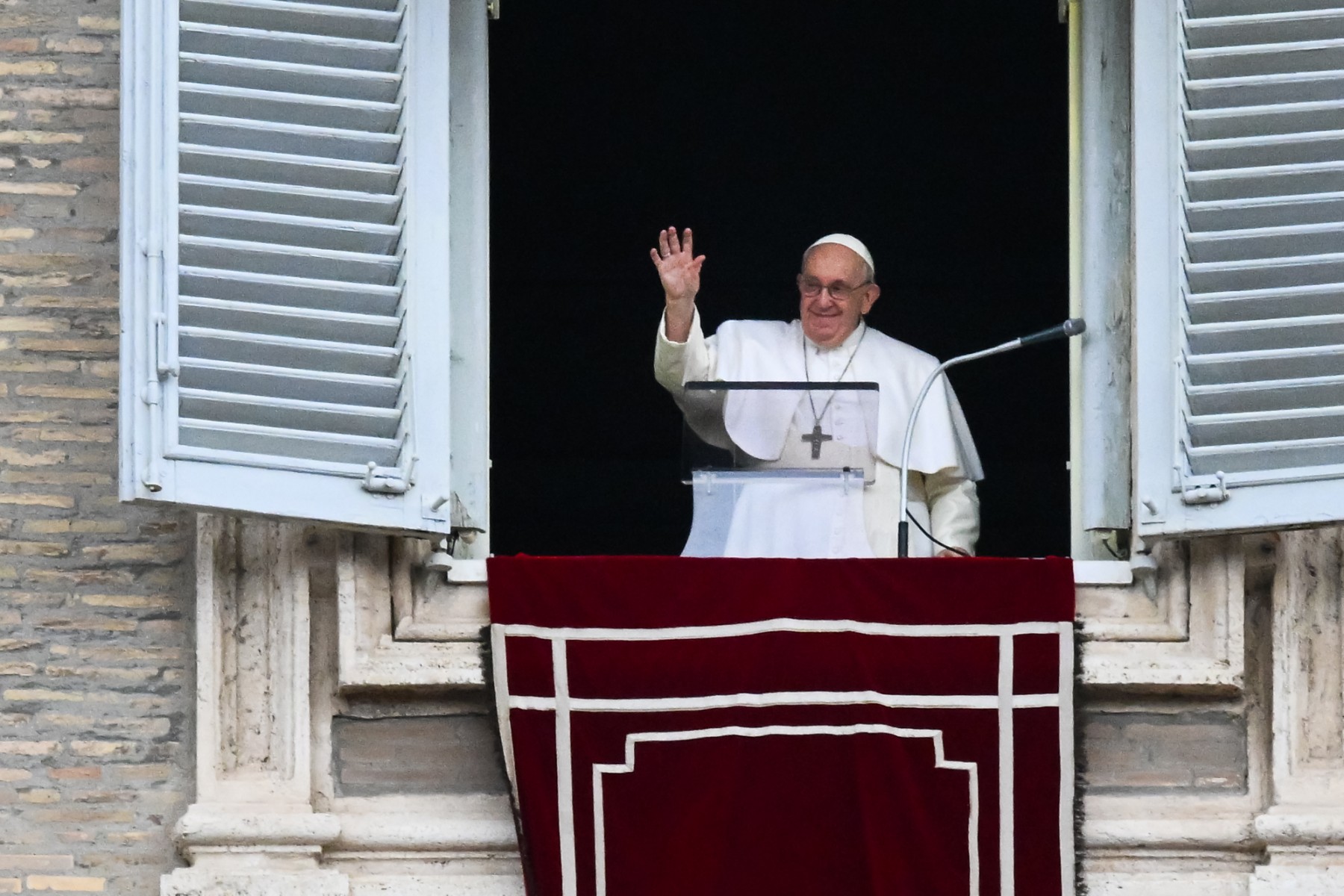On the fifth Sunday of Lent, Pope Francis challenged the faithful to do as they did when they were little children learning how to walk: letting God take them by the hand.
That way, the pope assured, even when they fall or feel discouraged, they won’t be alone. On the contrary, “it is precisely in these moments that he comes closer than ever to restore us to life,” the pope said in his Angelus address March 26.
Speaking from the window of the Vatican’s Apostolic Palace, the pope pointed to the Gospel of the day, which narrates the resurrection of Lazarus, a dear friend of Jesus. In what is his last known miracle before Easter, Jesus arrives when all hope is lost, but when he asks for the tomb to be open, prays to the Father, and shouts to Lazarus “Come out!” his friend comes back to life. As to Lazarus, Jesus repeats to each one of us: “Get up, get back on the path, regain confidence!” the pope recalled.
The Holy Father recognized how easy it is for us to feel hopeless or to meet people who have given up hope: because of a painful loss, an illness, a bitter disappointment, a wrong or betrayal suffered, or a serious mistake made. At these moments, he said, ”life often seems like a closed tomb, where everything is dark, and all around, one sees only sorrow and despair.” But Jesus “approaches our tombs and says to us, as then: ‘Take away the stone.’”
On the day after having promulgated an updated version of the Church’s norms to prevent and counter sexual abuse against minors and vulnerable adults, the pope spoke words of comfort and hope to all those who suffer: “Do not let yourself be imprisoned by pain, do not let hope die: Come back to life!” he urged.
For Pope Francis, the Gospel’s message is clear: “Jesus gives life even when it seems that all hope has gone.” That is to say, “Jesus invites us not to stop believing and hoping, not to let ourselves be crushed by negative feelings.”
The pope acknowledged that everyone likely carries in their hearts some burden or some suffering and urged the faithful to revisit chapter 11 of St. John’s Gospel and meet Jesus, who is near. “Can we open our hearts to him and entrust our worries to him? To open the tomb of problems and look over the threshold, towards his light?” Francis asked.
“And in turn, as small mirrors of Godhs love,” he continued to ask, “do we manage to illuminate the environments in which we live with words and gestures of life? Do we bear witness to the hope and joy of Jesus?”
Before ending his address, the pope recalled that we are all sinners and left a special word for confessors: “Dear brothers, do not forget that you, too, are sinners, and you are in the confessional not to torture: to forgive, and to forgive everything, as the Lord forgives everything.”
After praying the Angelus in Latin with the crowd gathered in St. Peter’s Square, Pope Francis expressed his closeness to the victims of the tornado in Mississippi and earthquake survivors in Turkey and Syria. He also prayed for peace and reconciliation in Peru.
The pope also recalled war-torn Ukraine, remembering the special ceremony of consecration to Mary that united the Vatican and the Shrine of Fatima in Portugal on March 25, 2022.
“Yesterday [March 25], the solemnity of the Annunciation, we renewed our consecration to the Immaculate Heart of Mary, in the certainty that only the conversion of hearts can open the path that leads to peace,” he said.
“Let us continue to pray for the martyred Ukrainian people,” he urged.







